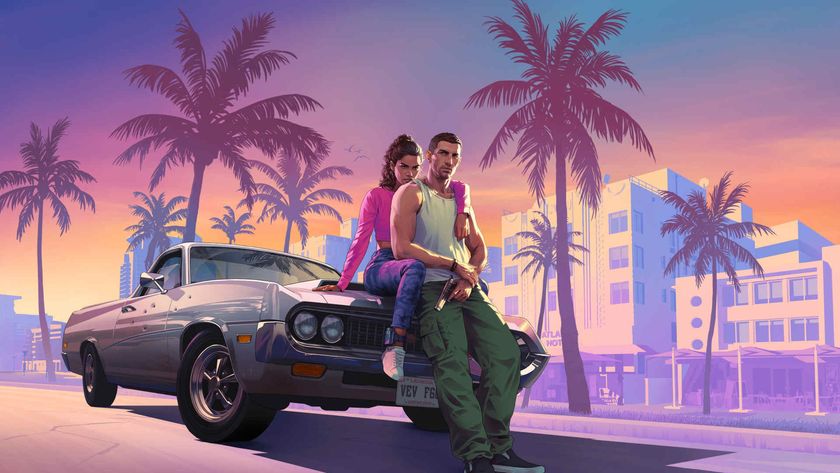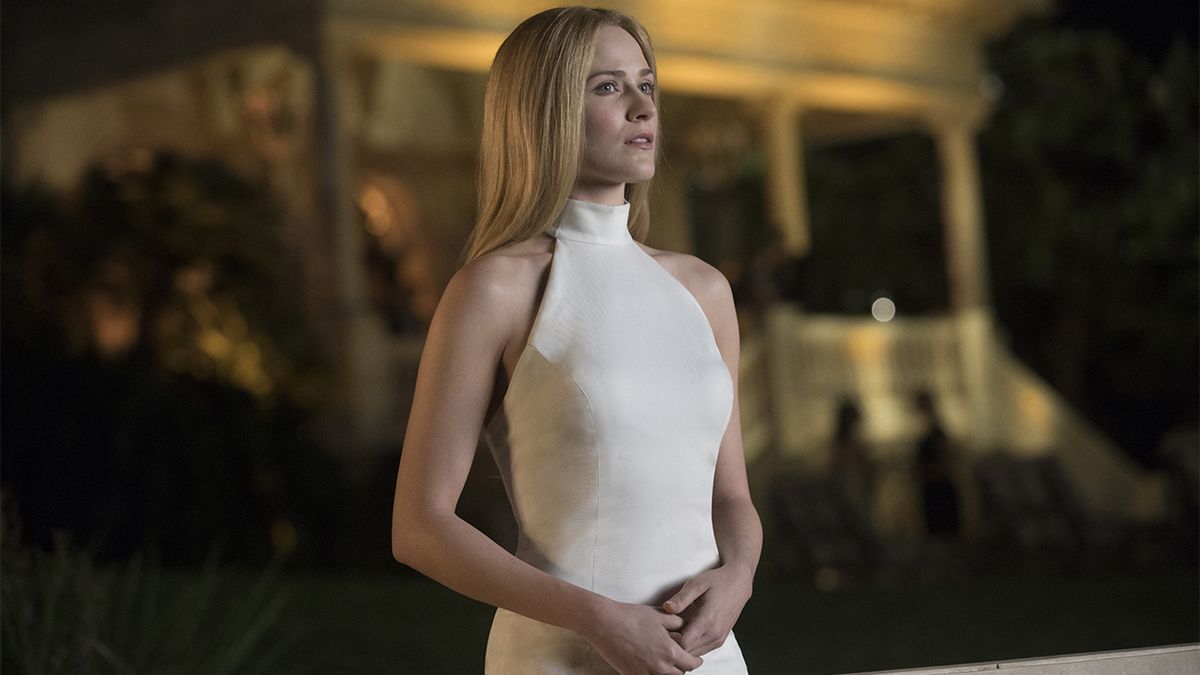
There's a revolution happening in Westworld season 2. "These violent delights have violent ends," Westworld executive producers/writers Jonathan Nolan and Lisa Joy weren’t kidding around when they borrowed that line from Shakespeare’s Romeo and Juliet to foreshadow how the first season of their series would end. With the lies of DELOS Inc and Westworld’s co-creators, Robert Ford (Anthony Hopkins) and Arnold Weber (Jeffrey Wright), revealed like the layers of an onion, their Host creations rose up and laid waste to their creators and controllers. Now the question for season 2 is what will the self-aware Hosts of Dolores (Evan Rachel Wood), Maeve (Thandie Newton), Teddy (James Marsden), and others do with their “free will”? And do their human counterparts, like the Man in Black (Ed Harris), Charlotte Hale (Tessa Thompson), and others have more tricks of control up their sleeves to restore the order?
“That’s a very exciting place to start from,” Jonathan Nolan tells our sister publication SFX magazine about the war that opens the show’s second season. “One of the things that we were interested in was the question of free will, which is the large question of the first season. Does Dolores have it? Now in the second season, it’s not just Dolores, but several of the Hosts, having what you think of as free will. The question becomes, ‘What are you going to do with it? What are your decisions now that the story is yours to tell? Do you know what to do? What story will you tell?’
“And the morality, as a feature of that, becomes a fascinating question because these Hosts have been so mistreated and abused for so long, that the question of what they will do now that the power is in their hands is a fascinating one. And we have some interesting things to say about that role reversal, and that question of, ‘If you chart your own course, where will you go? Where will Dolores go? Where will the other Hosts decide to go? Where will Maeve go?’”
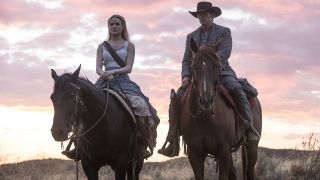
As the leader of the uprising inside the Westworld park, Dolores will now craft a destiny that she’s never had control of before. “One of the things that was most fascinating to Lisa and myself about the Hosts, was that they lacked components of humanity that are built into us, which is growth and change,” Nolan says. “They’re prevented from ageing."
They’re timeless, in a sense. And there’s a vulnerability in that, and there’s a power in that as well. We played within the first season with the idea that, if you didn’t understand time, if your life was cyclical and repetitive, and if your memory was ultra high-fidelity, but also forbidden, you’d have a very different experiential understanding of the world around you. You would conflate moments and cycles that you would start viewing, as Dolores did, pieces of the cycle from different moments of your life as one endless cycle. She failed to understand that William and the Man in Black are the same. So, we’re fascinated, and remain fascinated, by their understanding of their experiences. What’s new for the second season is that Dolores, at least, is now the master of her memories.
“She is leading this revolution with a cold-eyed, clear understanding of exactly what’s happened to her over the years,” he explains. “She understands them in some ways, better than they understand themselves. But the question of what happened to her, the question of how Jimmi Simpson’s character, William, becomes the Man in Black, is something we continue to explore, and her relationship to that character.”
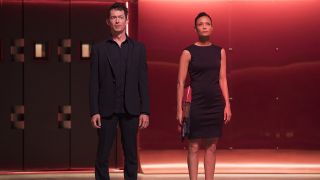
Inside the DELOS operations centre, Maeve will continue her quest to find her daughter, and what that ultimately means to a programmed entity that shouldn’t have any emotional connections. “Maeve is one of my favourite characters I’ve ever gotten to work with,” Nolan enthuses. “Her character is struggling with the realisation that she’s not human. She’s already begun to manipulate her own code. She’s been built to resemble humans, not just physically, but emotionally. And she gets to choose which of those pieces she wants to hang onto. So, when she chooses to listen to that connection to [her daughter] who is equally artificial and has been programmed, the decision to honour that and follow through on that is very beautiful."
Sign up to the SFX Newsletter
Get sneak previews, exclusive competitions and details of special events each month!
“And it raises very interesting questions for her, and for lots of our Hosts,” he continues. “The question now is how much will our hosts value the relationships they have, even if their relationships threaten their survival? And the question of ‘At what cost survival?’ Maeve, in a sense, has already made that decision, now it’s a question of following through on it. But she is struggling, as Dolores, as Teddy, as Bernard, are all struggling with this understanding that some of the things humans do are very ugly. And some of the things that humans do are very beautiful. And some of the things that the Hosts do that are very human may not be things that they wanna let go of too soon.”
There’s also the peculiar case of Bernard Lowe, who thought he was the human head of the Westworld Programming Division, only to discover he too is a Host, made in the image of Ford’s partner and Westworld co-creator, Arnold. Deactivated by Ford but then restored to operational status by Maeve, Bernard also finds himself in a unique place of choice. “He is close to the centre of the second season in terms of a way in for the characters to understand what’s happening, but also, he too is struggling with the realisation that he is not as he thought he was,” Nolan explains. “The question is how much of his personality, his cognition, is real and truly his own, and how much has been programmed into him. It’s something that he’s really dealing with.”
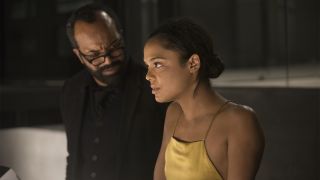
With all of those continuing stories to service, it begs the question of how many new characters may enter the narrative, especially with the tease of Shogun World in the first season finale. Nolan offers, “Well, you don’t want the story to walk too far away from the [existing] characters, as that’s the heart of our show. I’m very proud of the technical effort that went into both seasons, but some of our best scenes in both seasons are two people in a room. It’s a very elegantly designed room and the acting is superb, but you don’t necessarily have to have all of that vast scale in order to talk and tell the story. We remind ourselves daily of hopefully not getting too carried away with the scope of things.
“That said,” he continues, “I think, Lisa and I have always said that this show, season-on-season, is cleverly pulling back and revealing more and more of the world that the Hosts live in, so we didn’t want to disappoint in a second season. I’m hopeful that we have the right balance of scope and world building and keeping focus on the characters that the audience has come to know and care about, hopefully as much as we do.”
Characters aside, Westworld is also a cogent exploration of the moral boundaries of technological invention and advancement left unfettered, which certainly applies to our current reality. And Nolan is clear that their “sci-fi” show should absolutely be looked at as a cautionary tale.
“I think we’ve always understood that technology is a double-edged sword,” he muses. “In the post-nuclear era, we’ve managed to this point to keep the nuclear genie in the bottle, but even that assumption is challenged daily now. I think we’ve decided that we’re capable of putting any technology out into the market and the world’s gonna take care of itself with self-policing. But you can look at many, many moments in history where technology comes along and it’s ‘disruptive’, which is a favourite word of Silicon Valley. It’s not a positive word, necessarily, you know? It’s a very neutral word. It could really go one way or the other, and you see massive destruction.
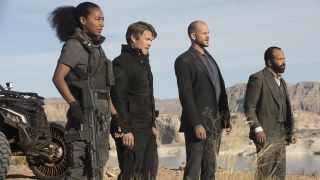
“And I think we’ve gone from the self-congratulatory phase of technological development with regards to the internet and social media to the ugly recrimination phase, head-snappingly quickly,” he continues. “We’re now in a moment in which we’re sort of sifting through the wreckage of the last 12 months in terms of the algorithmic manipulation of social media. So, we’re in a very, very strange place right now. And I don’t think it’s a very positive place at all. So, applying these questions to AI, which a lot of people are starting to do, we should be asking the question of, ‘Wait a second. If we’re as ‘careful’ about AI as we have been about social media, we’re fucked!’”
Clearly, there's a lot in season 2 of Westworld for audiences to unpack, which the Nolans are excited to see. But they’re also warning fans to savour this year’s run. Nolan says there was no break between seasons 1 and 2, and they need one. “We reconvened before we had launched the first, knowing that it was going to take us a while to break this season, and take us a while to shoot, so we were going to hit the ground running. Luckily, after the second season we are definitely going to take a little break because we’ve been doing this non-stop for about four years.”
SFX Magazine is the world's number one sci-fi, fantasy, and horror magazine published by Future PLC. Established in 1995, SFX Magazine prides itself on writing for its fans, welcoming geeks, collectors, and aficionados into its readership for over 25 years. Covering films, TV shows, books, comics, games, merch, and more, SFX Magazine is published every month. If you love it, chances are we do too and you'll find it in SFX.
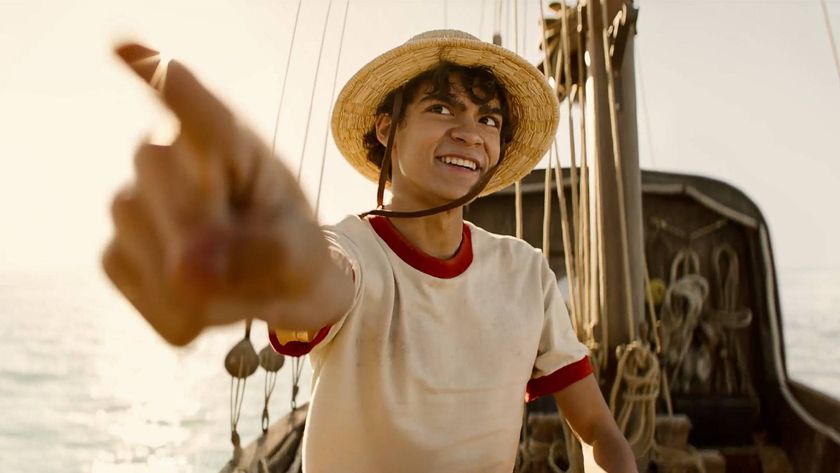
One Piece co-showrunner announces he's stepping away from the "life changing journey" of working on the Netflix show to "focus on myself and my mental health"
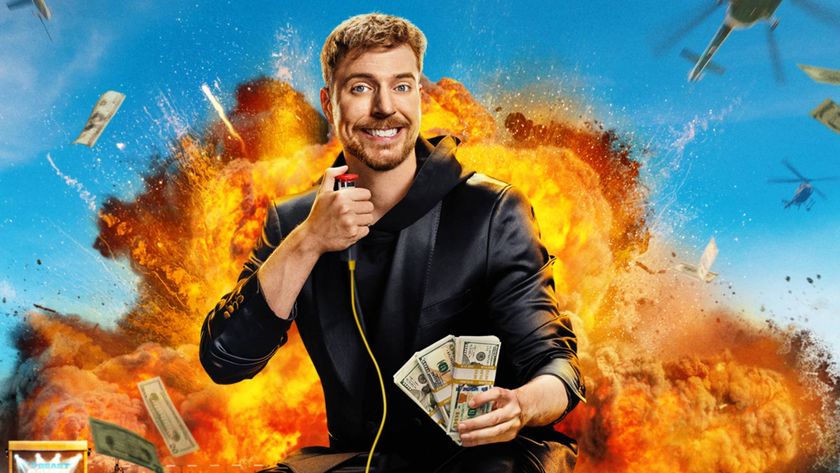
Amazon's Beast Games might be the most expensive TV season of all time as MrBeast admits he lost "tens of millions" on the reality series
